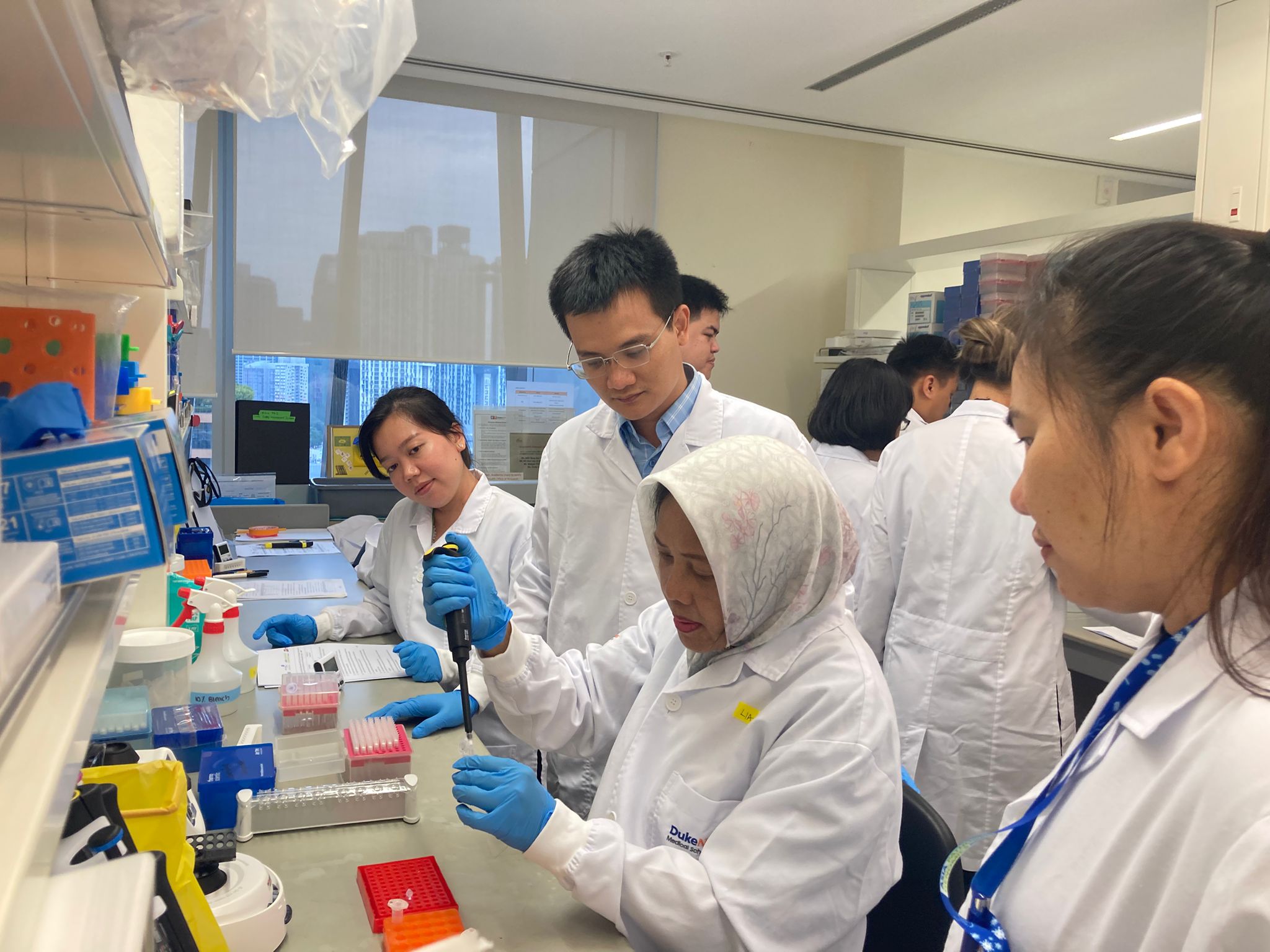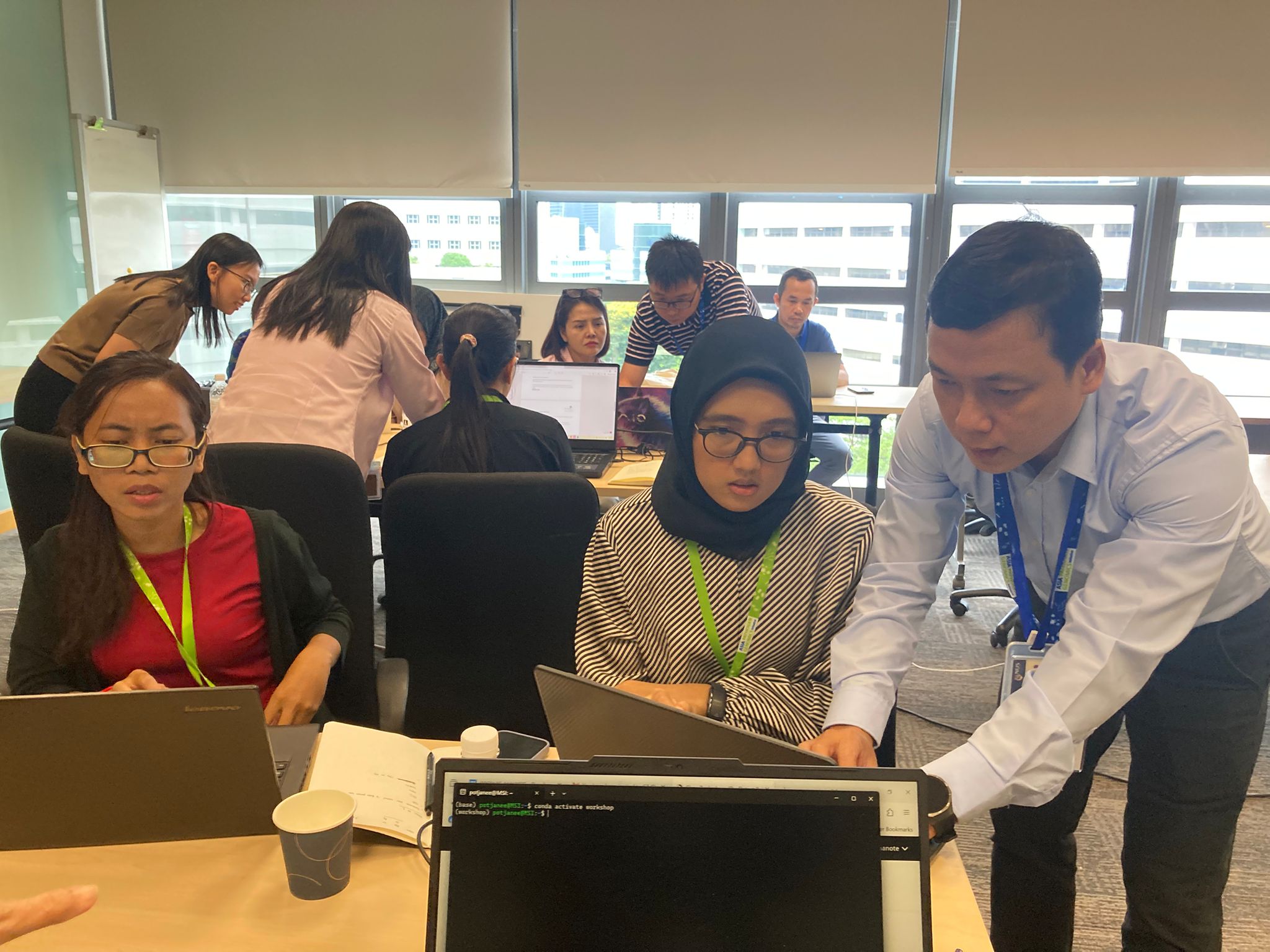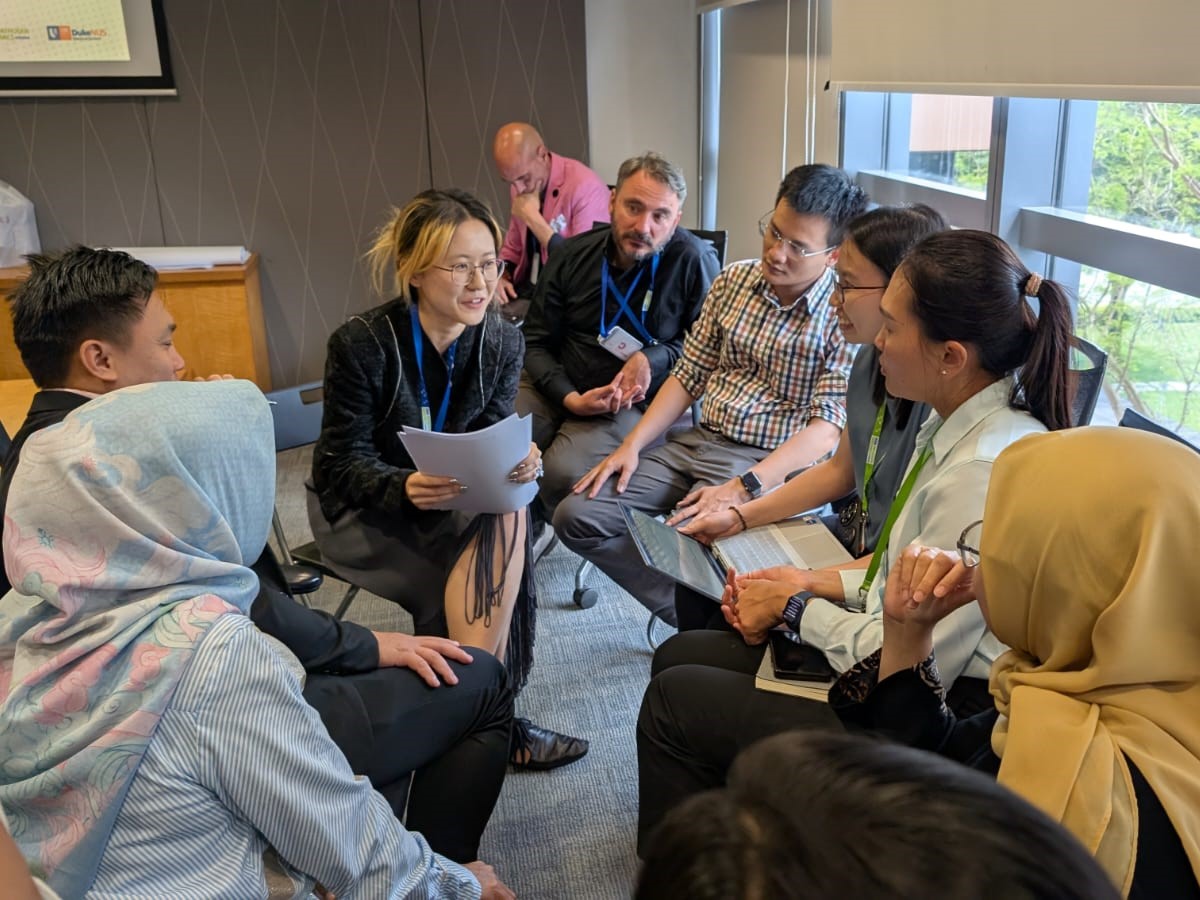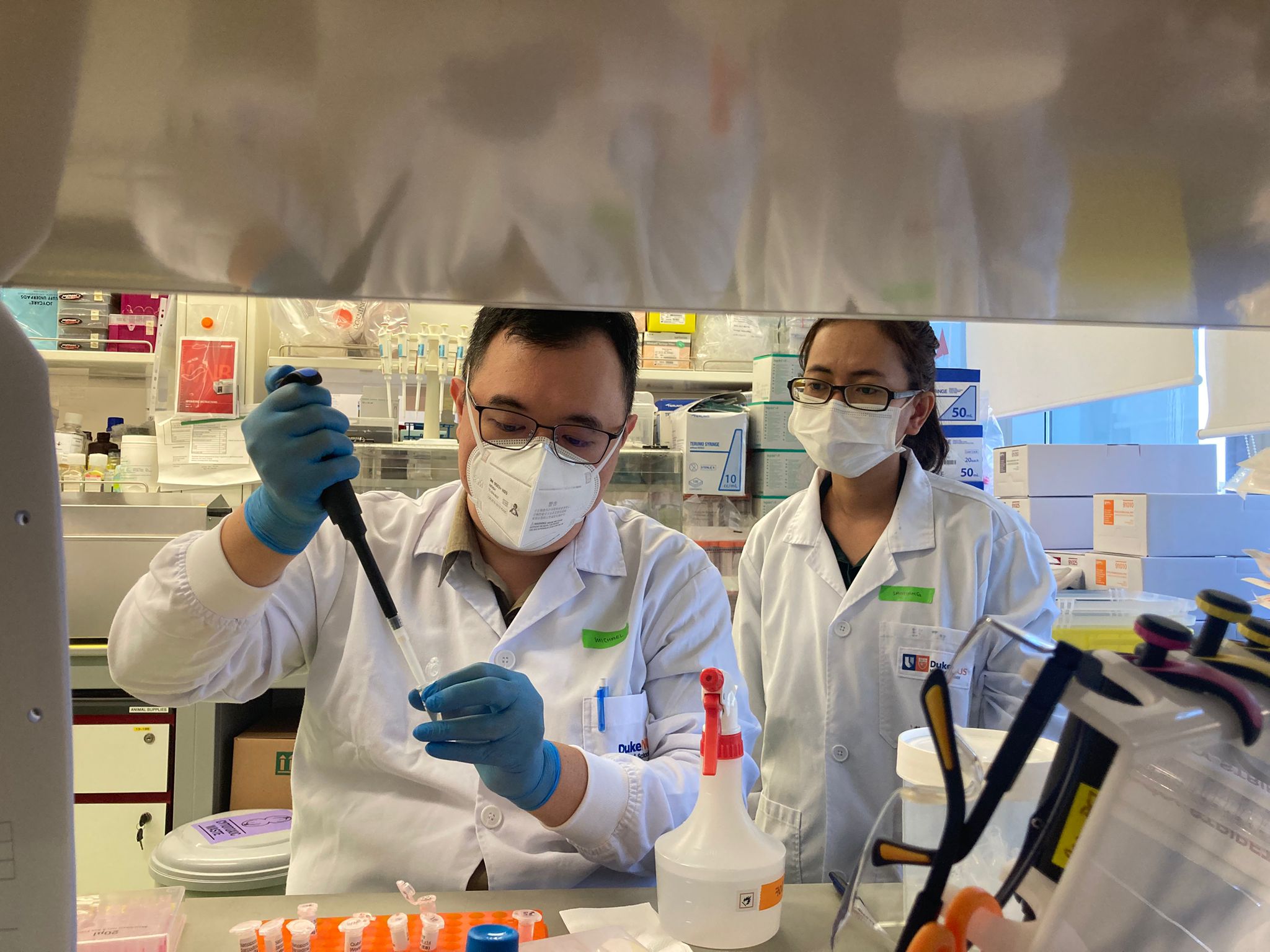Building regional expertise through collaborative metagenomics training for disease surveillance
Imagine being able to spot a new virus before it spreads, without even knowing what you are looking for. That is the promise of metagenomic sequencing, a cutting-edge tool that is transforming the way we detect infectious diseases.
In May 2025, seventeen participants from six countries gathered in Singapore for a week-long workshop that could shape the future of respiratory disease surveillance. Hosted by the Asia Pathogen Genomics Initiative (Asia PGI) through the Duke-NUS Centre for Outbreak Preparedness, in partnership with the national Programme for Research in Epidemic Preparedness and REsponse (PREPARE)1 under the Communicable Diseases Agency (CDA) in Singapore and regional experts from Institut Pasteur Cambodia, this hands-on training brought together participants from Cambodia, Indonesia, Malaysia, Singapore, Thailand and Vietnam.

Participants preparing samples for metagenomic sequencing in the laboratory.

Participants and trainers analysing metagenomic sequencing data in a bioinformatics session.

Participants and facilitators discussing ethical, legal and governance considerations related to sample and data sharing.
“The training of the PREPARE regional partners to have the technical expertise and resources to detect novel pathogens in conjunction with an active clinical surveillance program is key to the early detection and management of future outbreaks.” – Associate Professor Yeo Tsin Wen, Lead of PREPARE Regional Networks Co-Operative
Their goal? To master metagenomic sequencing—a powerful technique that scans all the genetic material in a sample, making it possible to detect any pathogen, even ones never seen before. In short, it gives scientists a head start when battling infectious disease threats like COVID-19 or novel strains of influenza.
But while the potential is immense, the road to adopting this technology—especially in countries with limited resources—is not easy. High costs, complex data and technical hurdles have slowed progress. That is where training programmes like this come in.
Over seven intensive days, the participants rolled up their sleeves and worked through the full sequencing process—from preparing samples in the lab to interpreting results using bioinformatics tools. They tried out both short-read and long-read sequencing technologies, gaining a deeper understanding of the options available and what might work best back home in their own labs.
On top of technical skills, two sessions looked beyond the lab bench. In one interactive session, participants practiced how to communicate complex genetic findings to policymakers and frontline clinicians. Because when an outbreak hits, science needs to move fast—and that means translating data into action clearly and convincingly.
Another session took on a tough but vital topic: how to share genetic data responsibly across borders. Using a fictional case study, participants explored the legal, ethical and governance issues that come into play when countries with different systems and capacities try to collaborate—an especially timely conversation as the world negotiates a new Pandemic Treaty.
Participants and trainers in one of the wet lab metagenomic sequencing sessions.

Participants gaining hands-on experience in metagenomic sequencing methods.
“This workshop went beyond technical training—it was about fostering a community of metagenomics experts who can collaborate across the region to share knowledge, expertise and data. By strengthening both our skills and our partnerships, we can build a stronger foundation for health security in Asia.” – Jeanie Wu, Asia PGI Laboratory Trainer
By the end of the week, the group was not just better equipped to use metagenomics. They were more connected, more aligned and more aware of the broader context of their work.
By fostering regional alignment, building technical expertise and addressing critical issues of data sharing and governance, the Asia Pathogen Genomics Initiative aims to contribute to a more resilient and responsive disease surveillance ecosystem. Workshops like this are a big step in that direction—investing in people, partnerships and the practical skills that matter when it comes to staying ahead of the next public health threat.
______________________________
1PREPARE is supported by the Singapore Ministry of Health through the NMRC Office, MOH Holdings Pte Ltd under the National Epidemic Preparedness and Response R&D Programme funding initiative (MOH-001041/MOH-001073/MOH-001446)
Group photo of participants and trainers after completion of the intensive 7-day metagenomics training workshop.